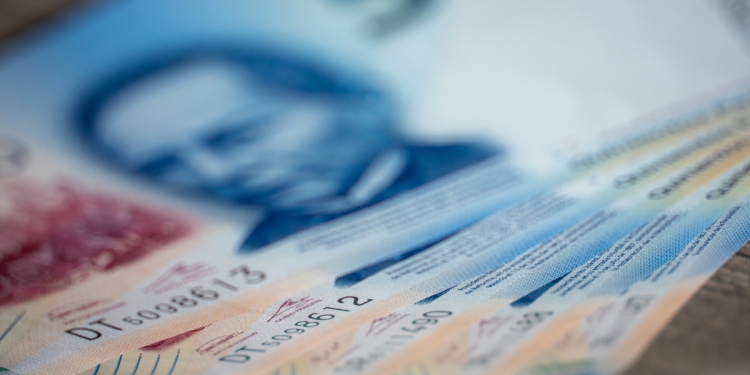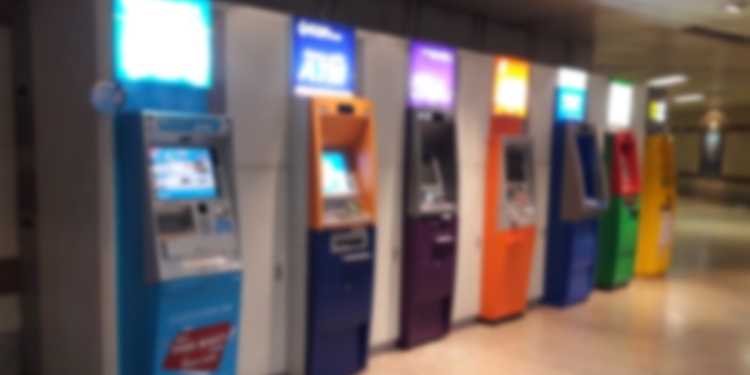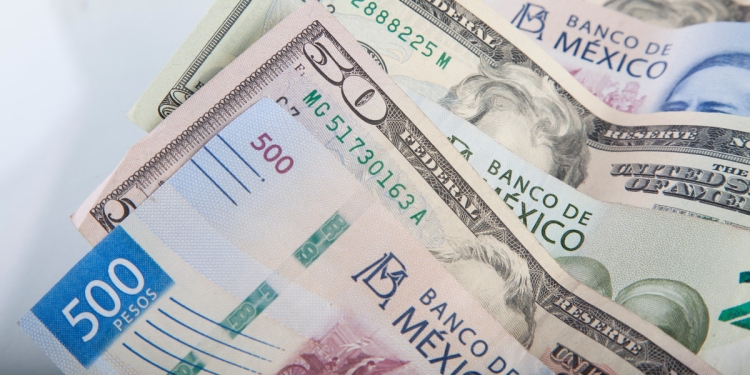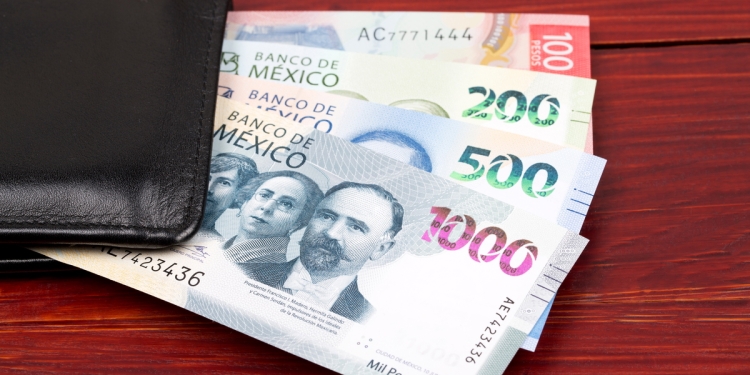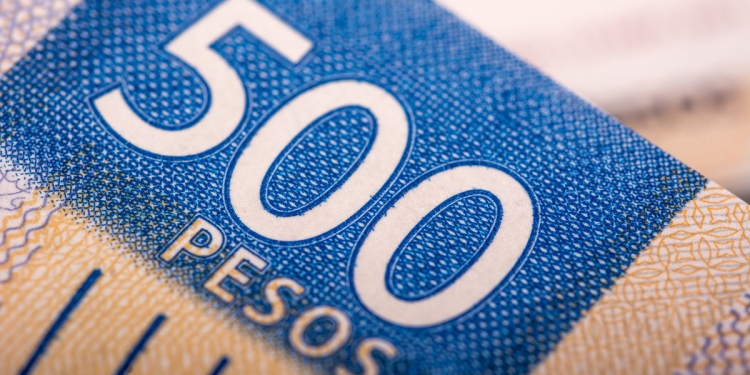When you have a bank account in Mexico, you will be offered access to a range of banking and financial services.
This article introduces you to all of Mexico’s principal retail banks, and a description of the services and facilities banks in Mexico provide with some comments to guide you when considering use of the service.
Summary profiles of Mexico’s retail banks
This section contains a list of Mexico’s principal retail banks and a brief overview of their history, size, and services. Connect to their websites for more information.
BBVA Bancomer
Bancomer was founded in the 1930s, and in the year 2000 Spanish bank BBVA bought Bancomer and eventually re-branded bank to match the parent bank’s corporate theme and colors.
BBVA Bancomer is the largest retail bank in Mexico with over 1,800 branches and c.13,000 ATMs. The bank is estimated to have around 22 million clients in Mexico. Its banking app is said to be among the best offered by banks in Mexico.
Website: www.bancomer.com.mx
Banamex
Banamex, short for “Banco Nacional de Mexico,” is one of Mexico’s oldest banks founded in 1884. CitiGroup, the US Banking giant, purchased the bank in 2001 and in 2019 rebranded Banamex to Citibanamex. CitiGroup spun-off the bank in December 2024 and the bank has since rebranded back to Banamex.
Banamex has one of the largest branch networks in the country (around 1,300) serving around 20 million customers and is also an agent for Western Union over-the-counter money transfers.
Website: www.banamex.com
HSBC
The British banking giant, HSBC (Hong-Kong Shanghai Bank of Commerce) bought the Mexican bank formerly known as Bital in 2002 and immediately re-branded every branch to HSBC.
The bank has around 1,500 branches across the country, operates one of the most extensive ATM networks, and was also the first banks in Mexico to open extended hours—forcing other banks to follow suit.
Website: www.hsbc.com.mx
Banco Santander
Spanish bank Santander bought Serfin in 1997 and rebranded all the branches across Mexico.
The bank operates around 1,300 branches and offices nationwide as well as an extensive ATM network that is present in many shopping centers and supermarkets in addition to its bank branches.
Website: www.santander.com.mx
Banorte
Banorte is one of Mexico’s oldest banks, established in 1899, and remains the only large-scale banking institution not controlled by a foreign banking institution.
It has a substantial reach across Mexico with some 1,300 branches and 7,000 ATMs serving about 13 million customers.
Website: www.banorte.com.mx
Scotiabank
Previously known as Inverlat, the bank was bought out by the Canadian banking giant Bank of Nova Scotia, and promptly rebranded in the Scotiabank’s image.
Scotiabank’s branches are well represented in major towns and cities across Mexico, but the bank does not have the reach of the branch networks run by BBVA Bancomer, Citibanamex, Santander, or HSBC.
Website: www.scotiabank.com.mx
Banco Inbursa
Banco Inbursa is controlled by Grupo Carso, Mexican billionaire Carlos Slim’s principal company.
It has around 400 branches across the country (including branches at Sanborns and Sears stores) and some 700 ATMs. The bank offers a wide range of retail banking, lending, and financial services and specializes in certain types of insurance.
Website: www.inbursa.com.mx
CI-Banco
CI-Banco began as financial consulting services firm CI in 1983 and in 2008 reformed to expand into retail banking services, with a focus on foreign exchange and facilitating international trade.
CI Banco operates a network of some 240 branches and foreign currency exchange kiosks in major cities and airports across the country. Their kiosks at airports are a helpful place to check for currency exchange rates as they are among the most competitive in the market.
Website: www.cibanco.com
Intercam
Intercam is a niche bank services provider established in 1996. It has a small network of 68 branches, prevalent in towns and cities popular with foreign residents, in particular Cuernavaca, San Miguel de Allende, Puerto Vallarta, Los Cabos, the Yucatán, and the Riviera Maya.
Its services focus on specialized retail, investment, and private banking services.
Website: www.intercam.com.mx
Banco Azteca
Banco Azteca was Mexico’s first bank to be based in a retail store, with branches at Elektra retail outlets.
Its primary purpose is to offer consumer credit to customers purchasing durable goods at its stores, often with ‘manageable’ weekly payments at subprime interest rates. Branches also offer foreign exchange services, and act an agent for Western Union money transfer.
Services and facilities offered by banks in Mexico
All of Mexico’s principal banks offer a range of bank accounts as well as other financial services including loans, credit cards, mortgages, and insurance. The principal financial services offered by Mexican banks are described here, accompanied by some comments to guide you when considering use of the service.
Accounts to individuals are offered only in Mexican pesos
Natural persons (persona física) cannot hold a foreign currency account in Mexico. Only companies (persona moral) can open foreign currency accounts.
Any funds you wire to your Mexican account will be converted into Mexican pesos.
Some banks offer ‘accounts’ in US dollars to individuals, but these are not deposit accounts although they might exhibit some features typical of a deposit account. Theses accounts might or might not be covered under the IPAB depositor insurance scheme.
Payroll accounts
Legislation requires that all Mexican banks offer a “basic” bank account, known as a Cuenta de Nómina (payroll account).
These accounts are intended for receipt of wages or salaries; they must not charge fees or commissions and provide the account holder with an ATM / electronic payment card so that funds from the account can be accessed in cash or spent at stores. Banks require a regular amount of money to be paid into these accounts (payroll) to keep them open.
Checking accounts
Every retail bank offers checking accounts. In Mexico, these often require a minimum deposit to be made each month, or a minimum balance to be held on account, to prevent charges from accruing. Banks usually give a set number of free ATM withdrawals per month; thereafter fees are applied to withdrawals.
Deposit accounts (instant access)
Deposit accounts where the money may be withdrawn ‘on sight’ (no notice required) are usually accompanied by a plastic debit card for use in ATMs and stores.
These accounts usually carry an aperture fee and require a minimum balance to be held on account (usually around $1,000 pesos) and pay a paltry rate of interest. If the balance goes below the minimum, a fee is applied each month until the account balance is restored to the minimum balance required.
Deposit accounts (term accounts)
The second type of deposit account in Mexico are ‘notice accounts’ sometimes called ‘term deposit accounts.’
With this type of account, you agree to deposit your money for a pre-defined period: usually 30, 60, 90, 180 or 360 days. Longer term accounts might also be available (3-5 years), but these are usually ‘investment’ or ‘unit trust’ accounts.
Interest rates on these accounts are better than ‘sight’ accounts. Some of these types of accounts will charge a penalty fee for early withdrawal of your money, and others will simply not allow you access to the funds until the end of the term.
Protection for bank deposits in Mexico
Mexico offers individuals with deposits on account a limited insurance scheme known as IPAB. IPAB insures bank deposits in qualifying institutions for up to 400,000 UDIs, which are inflation indexed currency units. The value of the UDI is updated and published daily on the Bank of Mexico’s web site.
See also: How safe is your cash in Mexico?
Mortgages
All major banks in Mexico offer mortgage products. The mortgage market is varied in Mexico but note that interest rates are higher than the US and Europe.
Borrowers need to place a deposits of at least 5%-15% to obtain a mortgage and there are set-up fees to pay when you apply for the mortgage loan.
Some mortgage products offer discount or “teaser” interest rates that switch to charging higher rates after an initial period; some offer lower aperture fees in return for higher interest payments and vice-versa.
See also: Financing real estate in Mexico
Automobile loans
Banks in Mexico offer specific products for the financing of personal automobiles and commercial vehicles in Mexico.
These loans are some of the most competitive in Mexico and are sold through dealerships or direct by the bank.
Car loan agreements often package-in the car insurance policy as well as other ‘extras’ you may purchase, but it might be less expensive to pay these separately if you can afford to do so—and if the terms of loan allow it.
Note that most banks (and car dealerships) will not offer car loans to foreign nationals who do not have permanent residency (Residente Permanente) status in Mexico.
Credit cards
The credit card market in Mexico began to take off significantly from around the year 2000. Mexicans and foreigners living in Mexico have willingly taken up the offers of widespread and abundant credit.
Note that most banks will not issue a credit card to foreign nationals who do not have permanent residency (Residente Permanente) status in Mexico. Banks will issued a debit card to foreign nationals with Residente Temporal status.
Many stores offer 6- or 12-month interest-free credit deals through credit card companies on certain goods and services. In these cases, the good or service is charged to your Mexican credit card by means of six- or twelve-monthly charges, equal to the purchase price with no interest added. Beware that missed payments may incur penalty charges and may void any interest-free arrangements you have in place.
Interest rates on credit cards in Mexico are high by US, Canadian and European standards. Rates of 50% or higher (per year) are common. Credit cards (and store cards) are the most expensive means of borrowing money from banks in Mexico.
Personal loans
Personal loans for a specific or non-specific purpose are also available in Mexico.
These loans are termed as “Prestamos de Nómina.” The word Nómina refers to salary payments made by your employer to your bank account every 15 days, thus the loan refers to the ‘security’ of your regular paycheck arriving at the bank as a form of collateral for the loan.
Note that most banks will not offer personal loans to foreign nationals who do not have permanent residency (Residente Permanente) status in Mexico.
Foreign currency exchange services
Retail banks offer foreign currency exchange services, but exchange rates might not be as attractive as those offered by the Casas de Cambio. Most retail banks will offer these foreign currency exchange services:
- Buying foreign cash currency and converting it to Mexican pesos (major currencies)
- Converting your Mexican pesos into a foreign cash currency (major currencies currencies)
- Wire money to foreign banks
- Receive money from a foreign bank and convert it into Mexican pesos in your account.
Some banks might also
- Cash paper checks drawn on banks in the United States into Mexican pesos
- Function as agents for over-the-counter wire transfer services
- Cash paper-based travelers checks
Some banks may require that you hold a bank account to transact some types of foreign business with them e.g., cashing traveler’s checks; in other cases, you do not need to be the bank’s own customer to transact foreign exchange services, e.g., over-the-counter wire services.
See also: Money Exchange in Mexico
Property trusts (Fideicomiso)
If you buy property in Mexico that is within 50km of the coast or 100km of a land border, you need to place the property into special trust known in Spanish as a fideicomiso. Mexican banks set-up and manage these trusts.
The trusts carry a set-up fee, an annual management fee, and also carry a closure fee if you sell the property and close the trust down.
Insurance services
Banks are agents for a wide range of insurance products including auto, home, health, travel insurances, as well as sellers of life assurance policies. Insurance services are offered on a stand-alone basis, or sometimes ‘bundled’ with other services, for example, the bank might sell an auto insurance policy as part of a car loan agreement.
AFOREs – Mexico’s retirement savings accounts
All Mexican banks are agents for government-approved pension products known as AFOREs.
AFOREs (similar to the 401k accounts in the USA) provide a tax-efficient savings vehicle whereby an employer, an employee, and the government each contribute into a tax-efficient savings pot which is then invested into equities and investment funds which are approved by the financial authorities.
Private banking services in Mexico
For individuals with high salaries, or people who have a significant amount of money to invest in financial products (people known by the banks as “high net worth individuals”), Mexico’s banks offer a range of private banking services that include preferential rates for banking and credit services as well as asset and investment portfolio management services.
If you are living in Mexico and are earning a significant salary, or plan to move or retire to Mexico with significant assets you want to invest in Mexico, banks here have an entire infrastructure of staff and services ready to service your individual requirements. Check individual web sites for details under the sections entitled Banca Privada.
Banking services for businesses and the self-employed
If you plan to run a business or work as self-employed in Mexico, Mexican banks offer a range of services specifically tailored to small businesses.
Services include corporate credit cards, corporate payment cards, payroll services, and loans for commercial vehicles and property. Business charges and rates are higher than charges for personal customers.
Learn about managing your money in Mexico
Mexperience offers you a wealth of information about Mexico’s money, banking services, and banknotes.
- Learn more about managing your money in Mexico
- Articles about Mexico’s banknotes
- Latest articles about the Mexican peso
- Latest articles about money and finance in Mexico
- Latest articles about health and safety in Mexico
The information published in this article is provided for general information in good faith and is not intended as personal, legal, financial or investment advice.
Mexico in your inbox
Our free newsletter about Mexico brings you a monthly round-up of recently published stories and opportunities, as well as gems from our archives.


